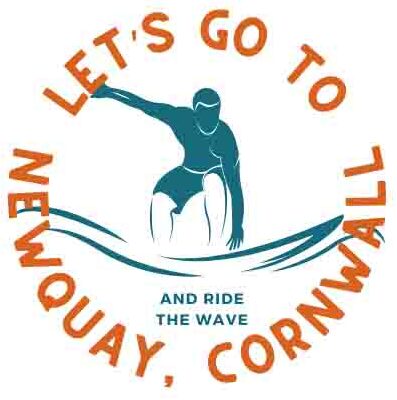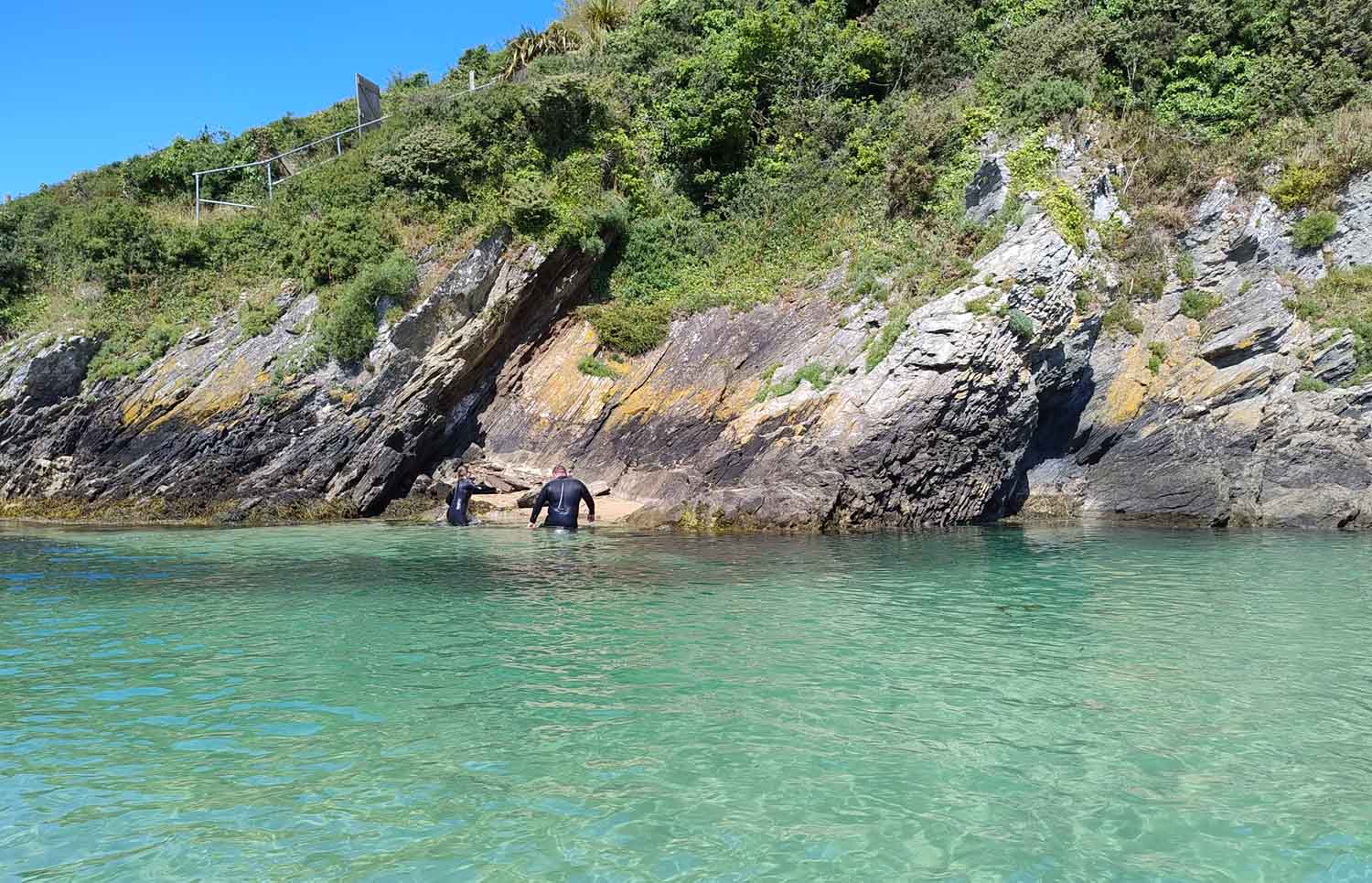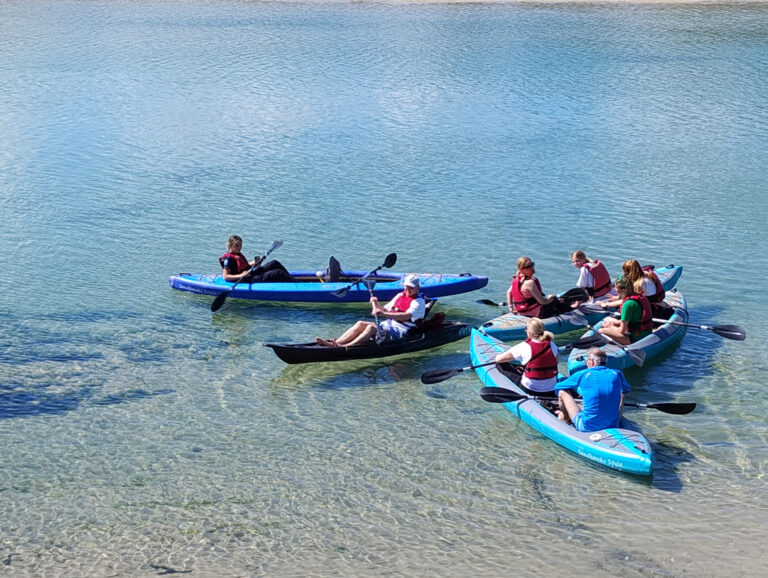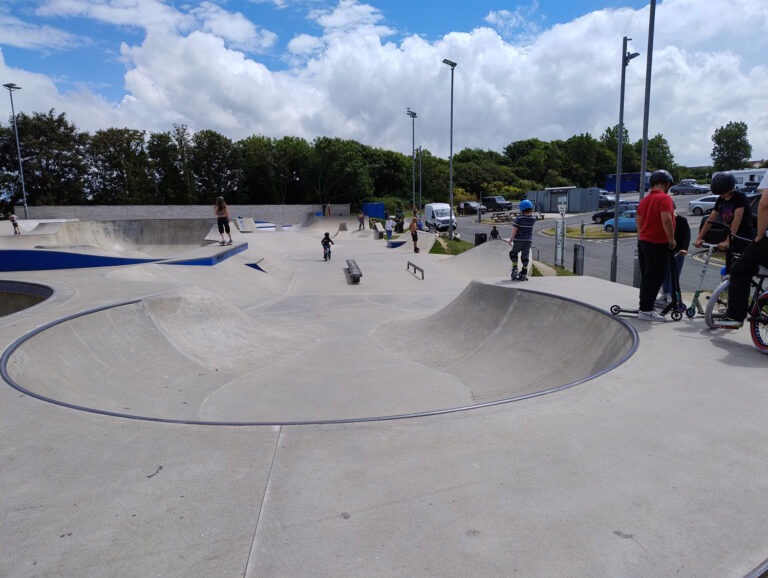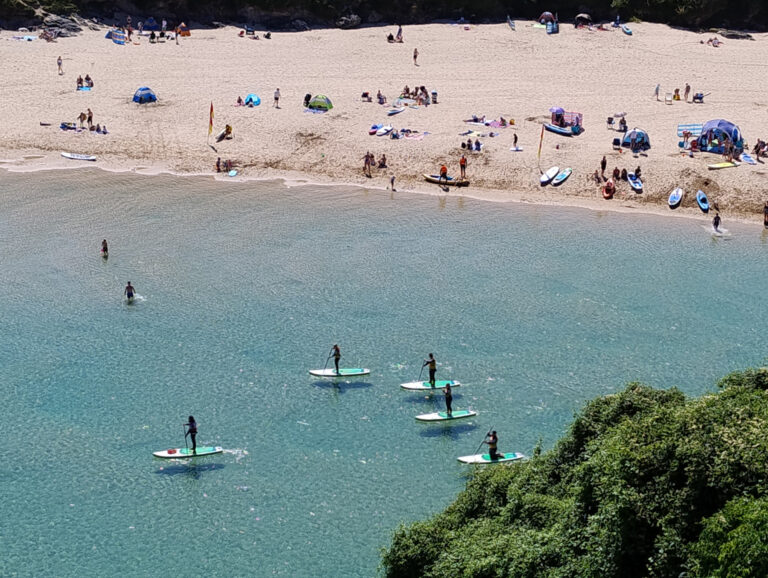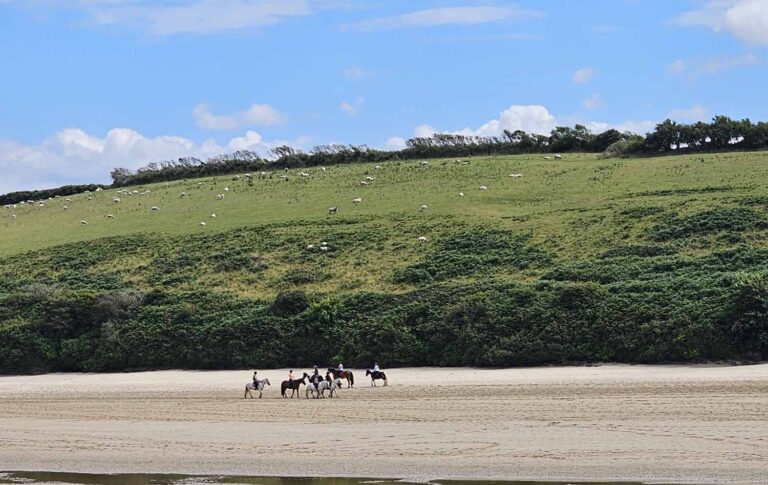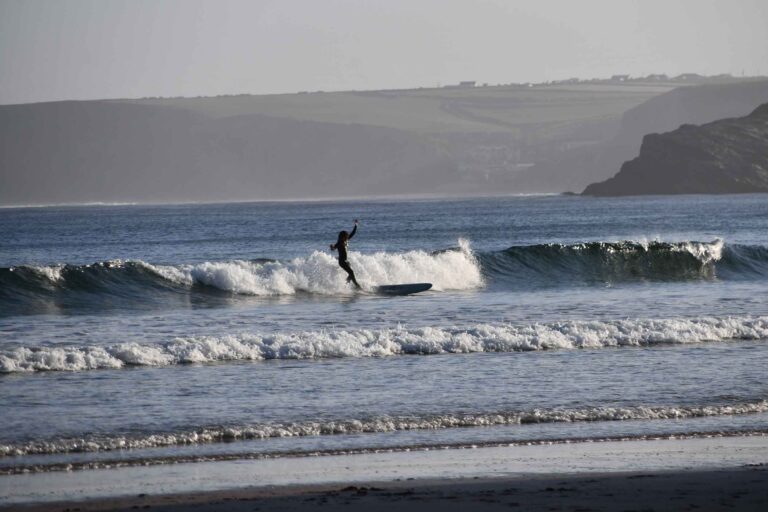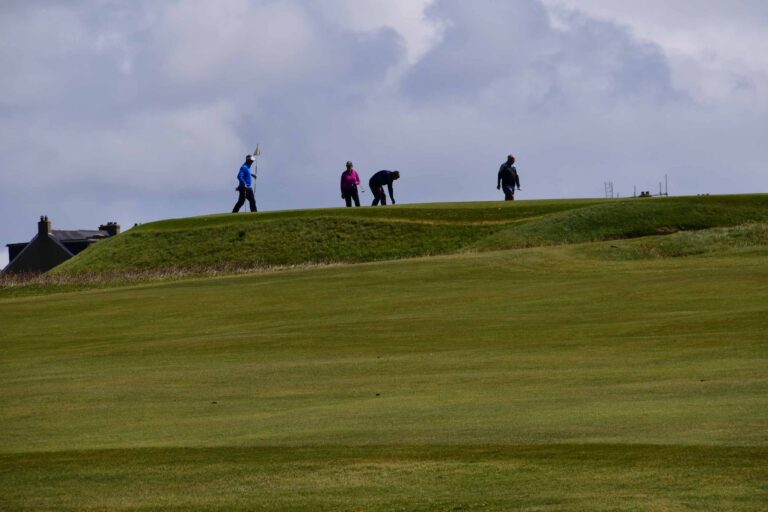Scuba Diving Adventures off Newquay Coast
Click below and listen the podcast about this post.
Scuba Diving Adventures off Newquay, on Cornwall's South West Coast, invites you to a magical underwater world. As you gear up and dive beneath the blue waves, you'll find Cornwall's amazing sea life and coral reefs. Your journey takes you through kelp forests full of colorful fish. You will find historic shipwrecks that whisper tales of the past. Newquay's pristine waters promise an unforgettable adventure. They will thrill you, whether you are a seasoned diver or new to the underwater realm. Dive in, explore, and uncover the magic that lies just beneath the surface. Have you ever wondered what lies beneath the sparkling blue waters off Newquay in Cornwall? Ocean lovers and adventure seekers will discover a thrilling experience. Scuba diving off the Newquay Coast reveals a magical world. It is full of marine life, shipwrecks, and underwater caves. This article will cover all you need to know about scuba diving in Newquay. We'll include tips, gear, and the best dive sites.
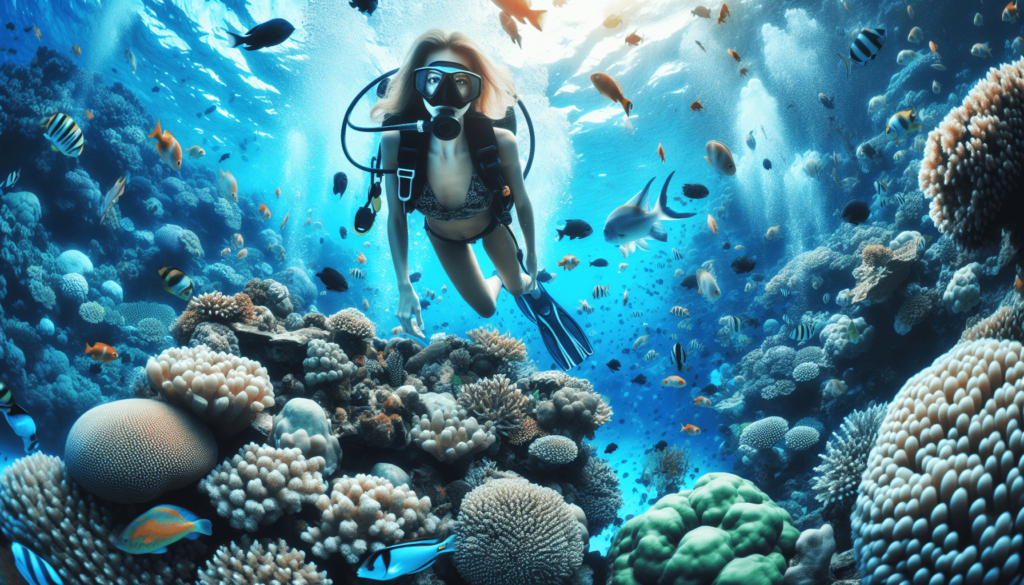
Why Choose Newquay Coast for Scuba Diving?
Tourists know Newquay for its stunning beaches, surfing, and vibrant nightlife. It's also famous for its amazing scuba diving. The coastal waters around Newquay are in the Cornish Marine Conservation Zone. This makes it a sanctuary for marine life, with diverse fish, anemones, and even seals.
Marine Biodiversity
The underwater world around Newquay is like an aquarium without the glass. Get ready to see colorful anemones, curious fish, and even playful seals. The Cornish Marine Conservation Zone has boosted marine biodiversity. It makes your dives more worthwhile.
Historic Wrecks
Explore the historic shipwrecks that dot the Newquay coastline to get a peek into the past. These wrecks attract divers worldwide and offer a unique dive. Some date to the early 19th century. They add historical intrigue to your underwater exploration.
Unique Dive Sites
Newquay has dive sites for all skill levels, from beginners to experts. From easy shore dives to challenging deep-water adventures, there's something for everyone. The underwater landscape has reefs, rocky outcrops, and submerged caves. Each dive is a new adventure.
Getting Started with Scuba Diving
So, you're interested in scuba diving but don't know where to start? Don't worry, getting started is easier than you think.
Certification
The first step is to get certified. There are several reputable certifications available, with PADI (Professional Association of Diving Instructors) being one of the most recognized.
Certification Levels:
| Level | Description |
|---|---|
| Open Water | Basic certification suitable for beginners |
| Advanced | Allows for deeper dives and comes with more skill training |
| Rescue Diver | Focuses on emergency skills and safety |
| Specialties | Includes areas like wreck diving, underwater photography |
Choosing a Dive School
Newquay boasts several diving schools that can help you get started. These schools offer a range of courses from beginner to advanced levels.
Top Dive Schools:
| School Name | Contact Info | Offerings |
|---|---|---|
| Newquay Dive Centre | [email protected] | All levels, specialty courses |
| Cornish Diving School | [email protected] | Beginner to advanced certification |
Essential Gear
Before you dive in, you'll need to make sure you have the right equipment. Most dive schools will provide basic gear, but it's always a good idea to invest in your own for comfort and familiarity.
Essential Gear List:
| Equipment | Description |
|---|---|
| Wetsuit | Keeps you warm in cold waters; 5-7mm thickness is ideal |
| Mask | Allows you to see underwater |
| Fins | Helps with efficient movement in the water |
| BCD (Buoyancy Control Device) | Helps you maintain neutral buoyancy underwater |
| Regulator | Provides air from your tank |
| Dive Computer | Monitors your dive time and depth |
Best Dive Sites in Newquay
Now that you're prepped and ready, let's dive into some of the best dive sites Newquay has to offer.
Little Fistral
Little Fistral is an excellent spot for beginners. The sheltered beach has easy access to the water. The shallow depths make it ideal for beginners.
Site Details:
| Feature | Description |
|---|---|
| Depth | 5-10 meters |
| Marine Life | Common fish, crustaceans, sea anemones |
| Accessibility | Easy shore entry |
The Gazzle
For the more experienced divers, The Gazzle offers an awe-inspiring experience. This site has underwater caves and rock formations. They are home to many sea creatures.
Site Details:
| Feature | Description |
|---|---|
| Depth | 20-30 meters |
| Marine Life | Lobsters, octopuses, large fish |
| Accessibility | Boat dive recommended |
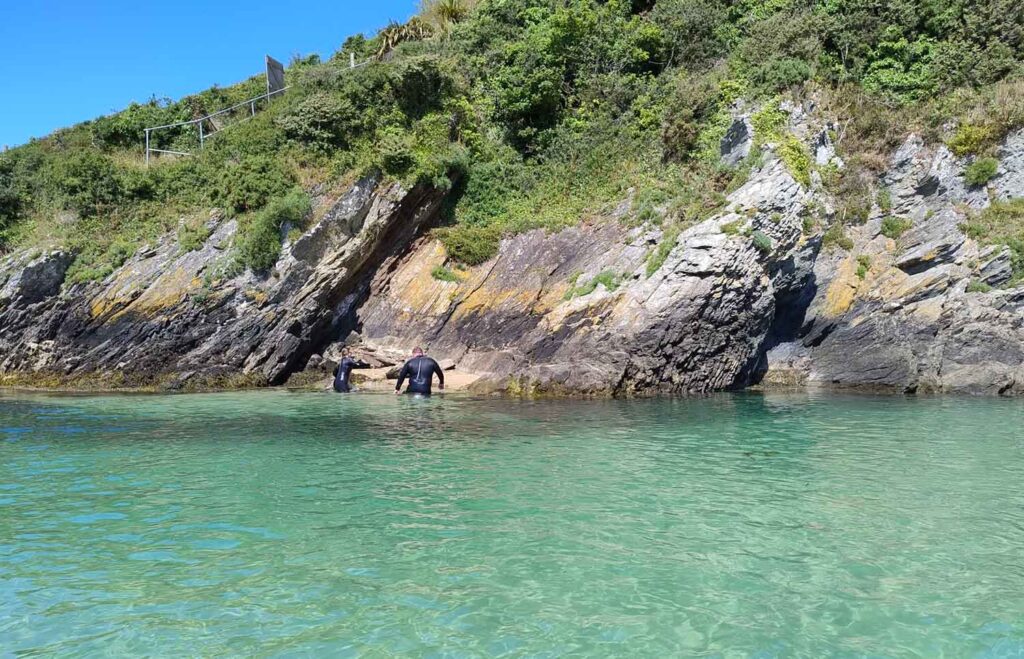
SS Mohegan Wreck
The wreck of the SS Mohegan is a must-visit for history buffs. This ship sank in 1898 and now sits at the bottom of the ocean, serving as a playground for divers and marine life alike.
Site Details:
| Feature | Description |
|---|---|
| Depth | 25-30 meters |
| Marine Life | Diverse, including congers and crabs |
| Accessibility | Boat dive; experienced divers only |
Towan Head
Towan Head offers stunning underwater landscapes with plenty of marine life. The site is suitable for divers of all levels, and the views both above and below water are simply breathtaking.
Site Details:
| Feature | Description |
|---|---|
| Depth | 15-20 meters |
| Marine Life | Starfish, small fish, crustaceans |
| Accessibility | Shore or boat dive |
Safety Tips and Precautions
Scuba diving is thrilling, but it has risks like any adventure sport. Taking the necessary precautions ensures you have a safe and enjoyable experience.
Pre-Dive Checks
Always perform a thorough check of your equipment before diving. Use the BWRAF mnemonic (Buoyancy, Weights, Releases, Air, and Final check) to make sure everything is in working order.
Dive Buddy System
Never dive alone. Always have a dive buddy, and maintain good communication with them throughout the dive. Having someone with you can help in case of emergencies or equipment failures.
Weather and Water Conditions
Check the weather and water conditions before planning a dive. Avoid diving in rough seas or during times of poor visibility, as this can pose significant risks.
Follow Dive Plans
Stick to your dive plan, including ascent and descent rates. Avoid pushing your limits in terms of depth and time. Always have a safety stop at 5 meters for 3-5 minutes to help off-gas residual nitrogen.
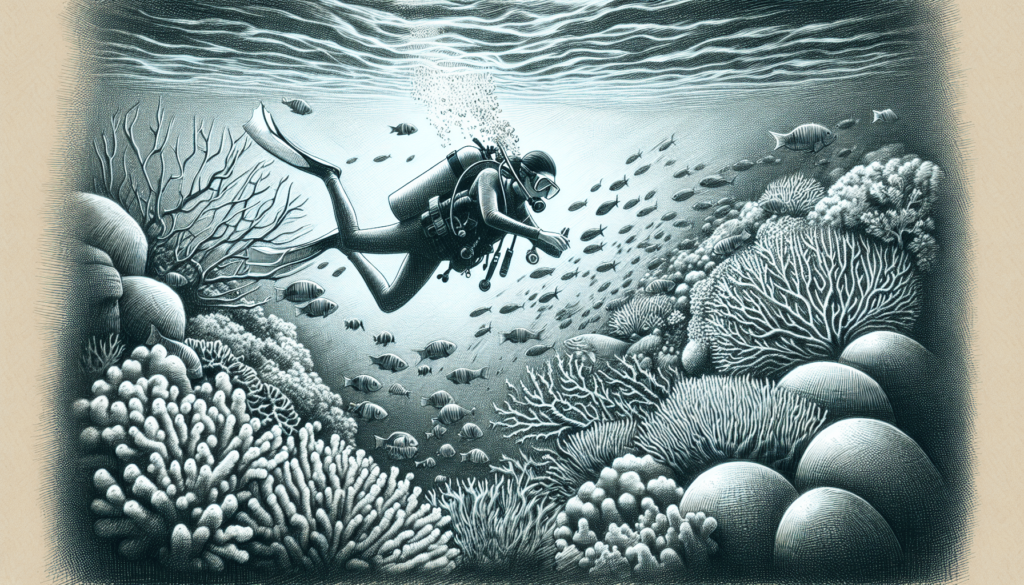
Environmental Responsibility
Being an underwater guest, it’s your responsibility to protect and preserve this fragile environment.
Do Not Touch
Refrain from touching or disturbing marine life. Many sea creatures are delicate, and touching them can cause harm to them and to you.
No Littering
Ensure you do not leave any waste behind. This includes any temporary waste generated by your pre-dive preparations. Keep the ocean clean for the next generation of divers and marine life.
Participate in Clean-up Dives
Many diving schools and local organizations conduct clean-up dives. These initiatives help remove garbage and fishing lines from the ocean, contributing to marine conservation efforts.
Post-Dive Activities
After a thrilling day of diving, Newquay offers plenty of activities to help you unwind and soak in the local culture.
Exploring Newquay
Take a leisurely stroll along the beautiful beaches, enjoy some freshly caught seafood at a local restaurant, or visit one of the many quaint shops around town.
Relaxing at Fistral Beach
Fistral Beach is famed for its golden sands and perfect waves for surfing. If you’re up for it, you might want to exchange your fins for a surfboard and give surfing a try.
FAQs
Do I need prior experience to dive in Newquay?
No prior experience is needed to start diving in Newquay. Local dive schools offer beginner courses suitable for those new to the activity.
What is the best time to dive in Newquay?
The diving season typically runs from late spring to early autumn. The best time would be between June and September when the waters are warmer and visibility is at its peak.
Can I rent diving equipment locally?
Yes, most dive schools in Newquay provide rental equipment. It is advisable to check in advance regarding the availability and condition of the gear.
Are there guided diving tours available?
Absolutely. Several dive operators offer guided tours, which can be beneficial for knowing the best spots and ensuring safety during your dive.
What should I do in case of a diving emergency?
In the case of a diving emergency, the primary steps are to remain calm, signal your dive buddy, and follow your dive training on how to handle the specific issue. You should also carry a diving emergency contact number for quick assistance.
Final Words
Scuba diving off the Newquay Coast in Cornwall will be an exciting adventure. It will be unforgettable. There are many dive sites. They have rich sea life and historic shipwrecks. They suit all skill levels. So, there is something for everyone. By taking precautions and respecting the environment, you can enjoy your underwater adventure. So, put on your fins and dive into Newquay's magical waters. A world of wonders and unforgettable experiences awaits you!
